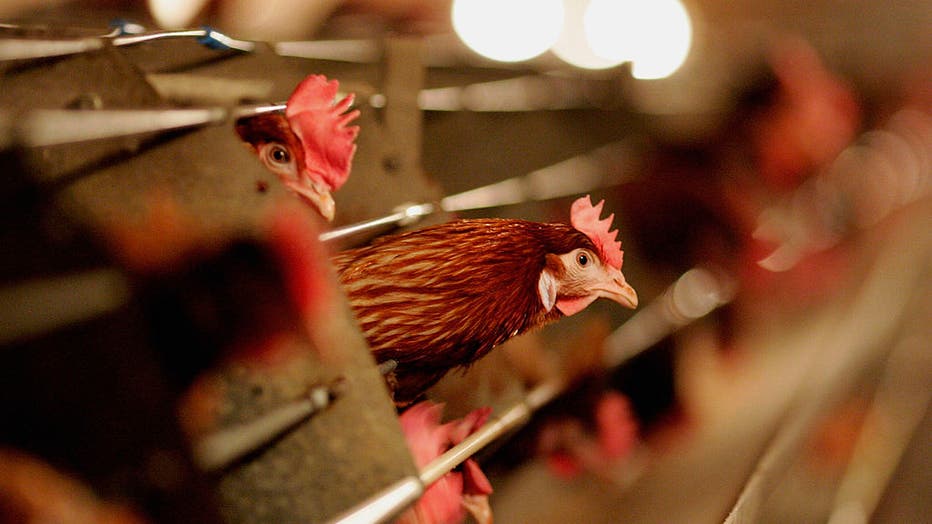Bird flu: Can humans get infected?
After reports surfaced of a dairy worker in Texas contracting a highly pathogenic strain of bird flu, it's understandable that concerns about a potential broader health emergency may arise.
According to Texas health officials, the patient, who had only reported eye redness, received an antiviral drug treatment. They had been in contact with cows suspected of being infected, though the risk to the public is deemed low. Federal health officials noted this as the first documented case worldwide of a person contracting this particular strain of bird flu from a mammal.
Since 2020, a bird flu virus has been circulating among a broader range of animal species, including dogs, cats, skunks, bears, seals, and porpoises, across numerous countries.
However, experts advise against panicking, emphasizing that the risk to the general public is minimal and there is no evidence of sustained human-to-human transmission.
Here's the essential guide to understanding the illness, covering its symptoms, treatment methods, and the potential risks it poses to humans.
What is bird flu?
Bird flu, or avian influenza, is a viral infection primarily affecting birds, commonly originating from wild bird populations such as waterfowl and shorebirds. It is caused by influenza A viruses, which can infect domestic poultry and other bird species. While most strains of bird flu do not pose a significant threat to humans, some, such as H5N1 and H7N9, have caused severe illness and even death in humans. Transmission to humans typically occurs through direct contact with infected birds or their droppings, and while rare, it can lead to severe health complications.
RELATED: Bird flu detected in milk supply from Texas and Kansas cattle
H5N1, initially recognized as a danger to humans during a 1997 outbreak in Hong Kong, emerged when individuals visiting live poultry markets contracted the virus.
Since then, sporadic outbreaks have occurred, resulting in over 450 deaths from bird flu infections in the last two decades, as reported by the World Health Organization. The primary mode of transmission for the majority of affected individuals is direct contact with birds.
Data from the Centers for Disease Control and Prevention revealed that in the United States, highly pathogenic avian influenza has been found in over 9,000 wild birds and has impacted more than 82 million commercial poultry and backyard flocks since early 2022.
Can humans get infected with bird flu?
Some animals, such as foxes, raccoons, and skunks, can become ill with bird flu when they consume birds carrying the virus. Occasionally, humans can also contract bird flu if they come into close contact with infected birds, although such occurrences are rare.
The recent case in Texas is only the second case of a person in the U.S. being diagnosed with the Type A H5N1 virus.
The first instance occurred in 2022 when a prison inmate participating in a work program contracted the virus while culling infected birds at a poultry farm in Montrose County, Colorado. Despite experiencing fatigue as the sole symptom, the individual made a full recovery.
Symptoms of bird flu
In the event that a person becomes infected, the symptoms of bird flu would vary depending on the specific strain of the virus. According to the CDC, the majority of human-recorded cases in the past 25 years have been attributed to three main strains, including H5N1 and H7N9.
RELATED: Bubonic plague: What to know after Oregon cat gives owner rodent-borne disease
Symptoms of bird flu virus infections in humans can vary widely, according to the CDC. They may range from no symptoms at all or mild illness such as eye redness or mild flu-like respiratory symptoms.
More severe manifestations may include fever, chills, cough, sore throat, runny or stuffy nose, muscle or body aches, headaches, fatigue, and difficulty breathing. Less common symptoms may comprise diarrhea, nausea, vomiting, or seizures.

Battery hens sit in a chicken shed on February 6, 2007 in Suffolk, England.
In terms of treatment, the CDC advised prompt administration of antiviral drugs for individuals who contract bird flu, ideally initiating treatment at the onset of symptoms for optimal efficacy. If you become ill after close contact with sick or potentially infected birds, it is essential to promptly notify your state or local health department and seek immediate medical attention from a healthcare provider.
Could bird flu become the next pandemic?
In a 2023 interview with FOX News amid a bird flu outbreak affecting poultry, Dr. Christian Sandrock, division vice chief of internal medicine at UC Davis Health in Sacramento, California, who specializes in infectious diseases and has conducted extensive research on avian influenza, emphasized that the disease primarily affects birds.
"It’s very common among wild waterfowl all around the world, and it can jump to domesticated birds, particularly turkeys and chickens. It can also infect pigs, swine and many other animals," he said.
While he said people can get infected and that it is possible to get sick and die from it, the virus itself would have to mutate in some way to become highly contagious among humans.
The contagion risk increases when a strain of avian influenza mixes with another flu virus that is more "human-friendly," a process called genetic reassortment, he said. The end result is a new virus that is stronger and easier to transmit.
"A single virus can go from a bird to a human — but the real threat is when you throw in one or two other viruses from pigs or humans, and that sets the stage," Sandrock said.
The Associated Press and FOX News contributed to this story. It was reported from Los Angeles.

